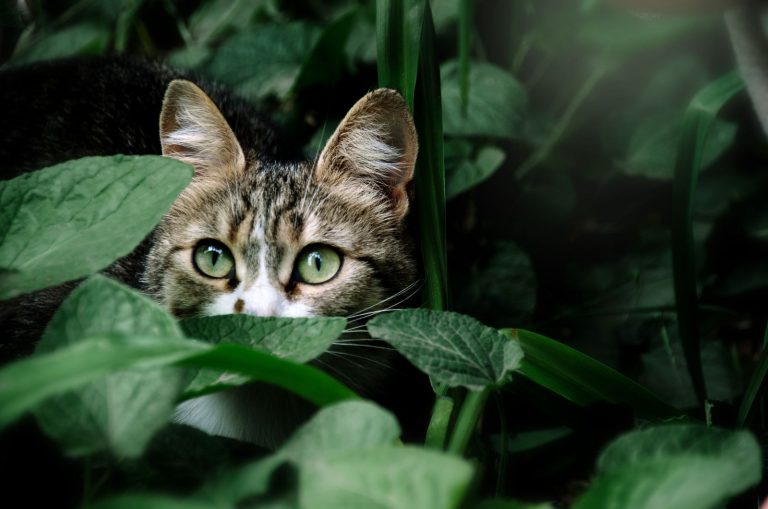What Does Cat Spray Smell Like? Why Is It So Bad?
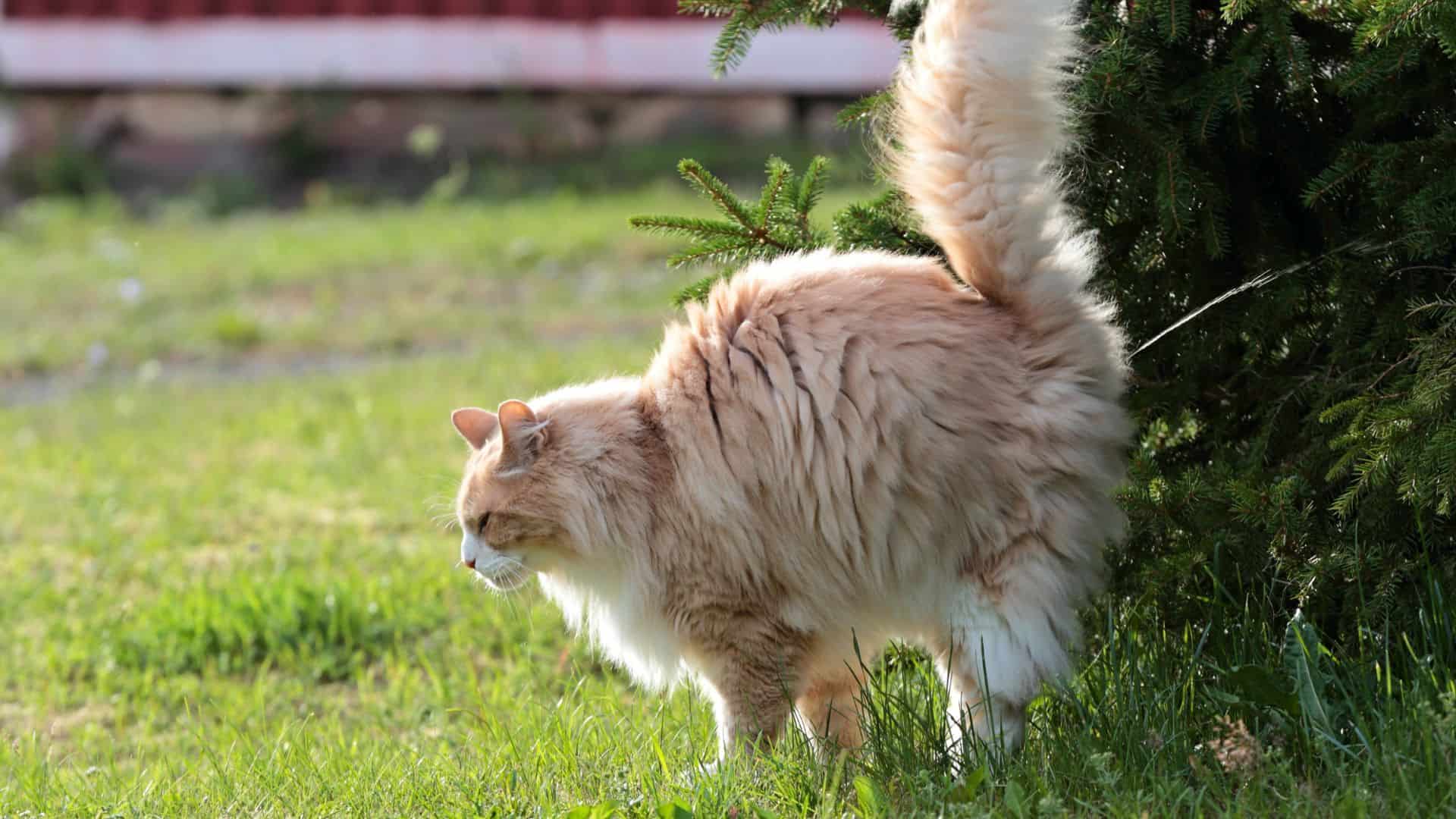
Spraying is when a cat releases small amounts of urine onto vertical surfaces or, rarely, horizontal surfaces. Spraying behavior is not something any cat owner wants to see.
What does cat spray smell like? If you’re guessing it’s not good, you’re right.
Read on to learn more about the smell of cat spray, how it differs from the smell of pee, how to get the smell of cat spray out of your house, and much more.
What Does Cat Spray Smell Like?
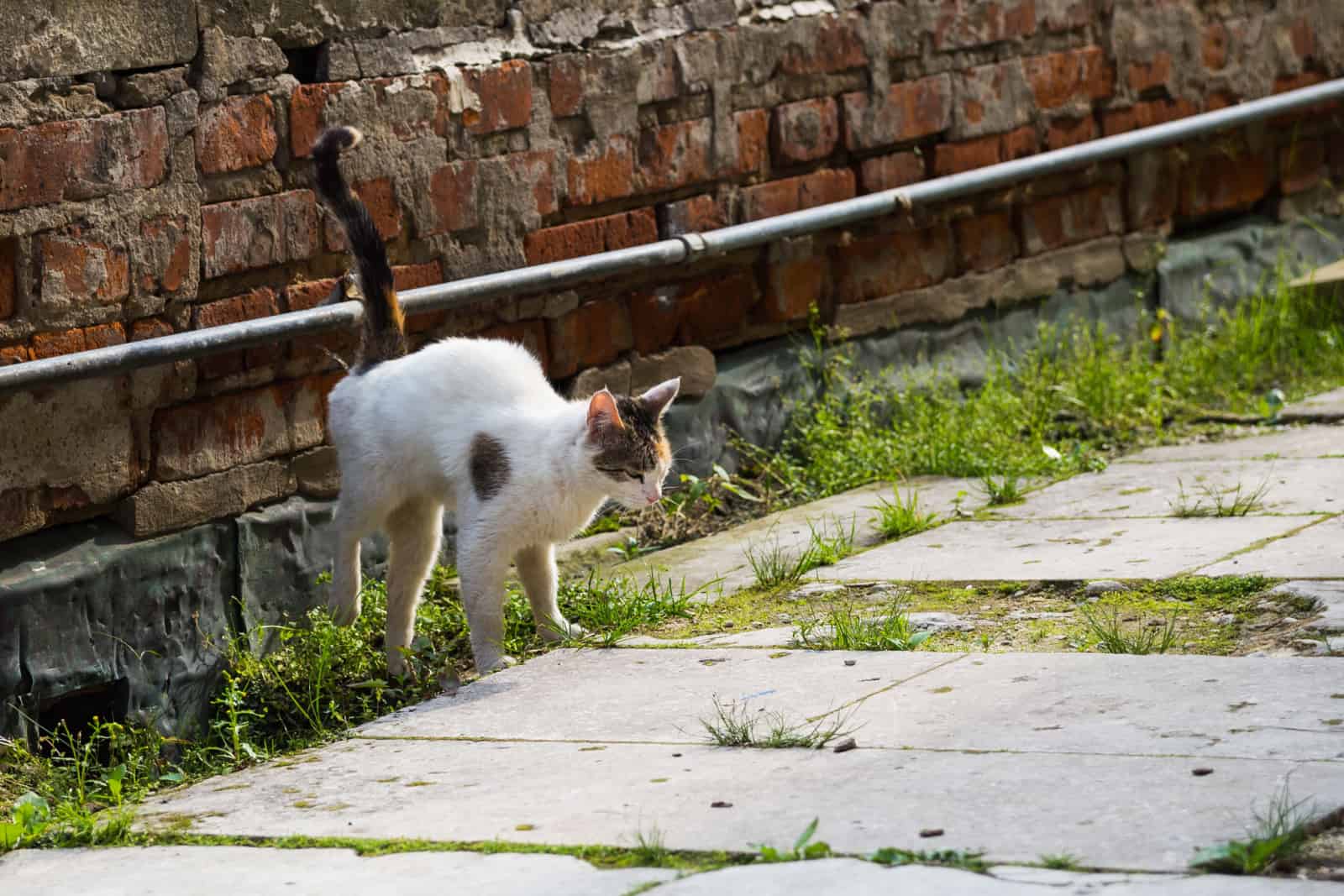
If you’ve started noticing a strange smell in random places, especially horizontal surfaces in your home, it’s most likely that your cat has sprayed that area.
Most cat owners that have experienced their cats spraying will tell you that the cat spray smell is stronger and more pungent than the smell of urine.
Therefore, if the strange smell in certain areas of your home is urine-like but even more unpleasant, then that’s a definite sign your cat has sprayed that area.
The scent of spray varies from cat to cat. If you’ve owned several cats, you’re probably aware that the scent of their pee varies depending on the cat, and the same goes for spray.
How Does The Smell of Cat Spray Differ From Cat Pee?
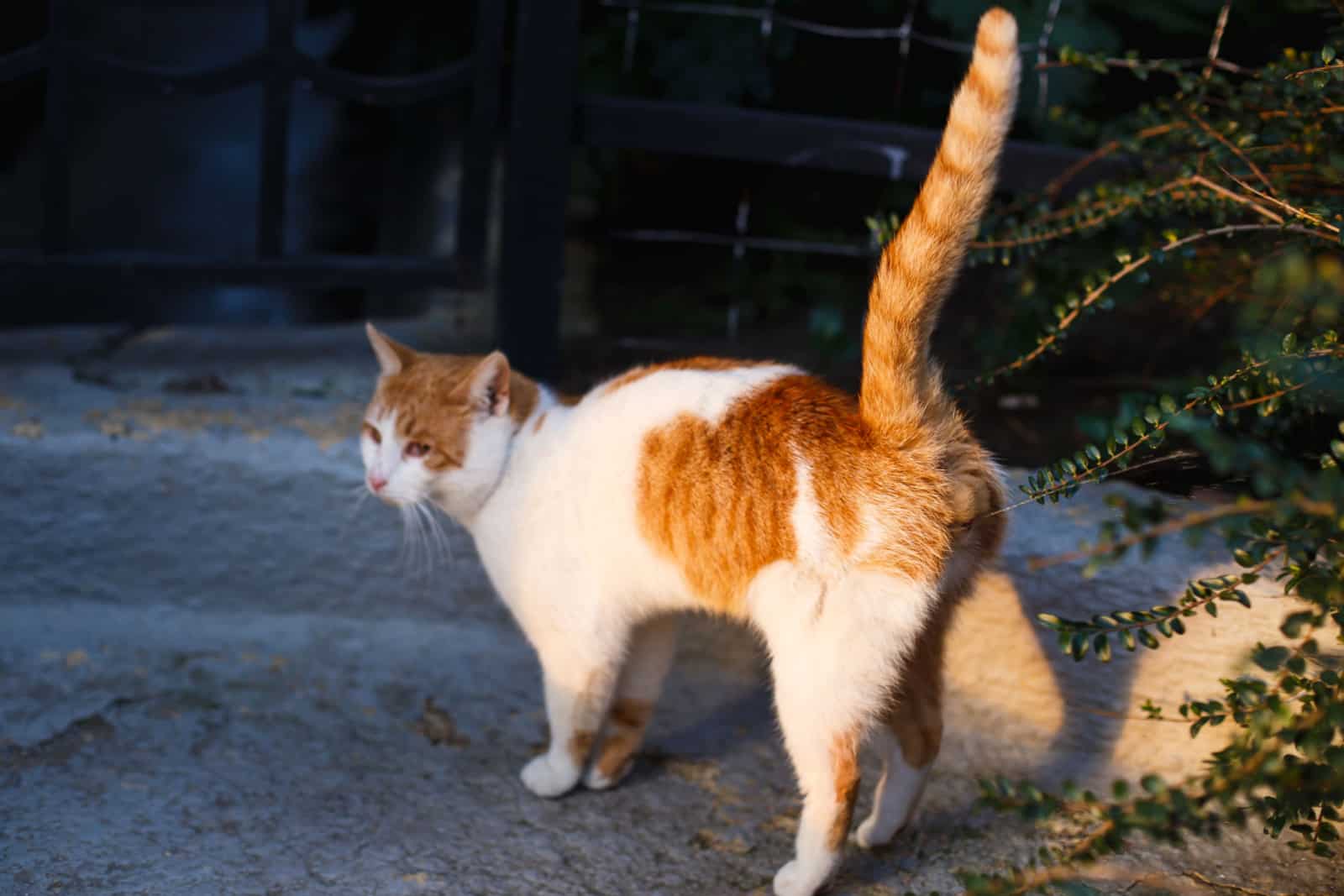
Cat spray frequently smells somewhat different from cat pee, and this is because urine and other chemicals produced by their bodies are used to transmit such messages.
Unlike the natural urine smell in your cat’s litter box, cat spray has a much more pungent odor that does not fade as readily.
The strong, musky odor can sometimes be detected 10 feet away and will linger on for quite some time. Further below, I will explain how you can get rid of the spray stench from your home.
Why Does Cat Spray Have A Strong Smell?

Cats’ spray is designed to stand out, so you will probably detect its fragrance immediately.
Cats purposefully spray to let other cats know that’s their territory and draw female cats’ attention to themselves. Its powerful scent is, therefore, not surprising.
Spray pee typically smells stronger than urine in the litter box due to the presence of extra pheromones.
The potent pheromones that cats emit when they urinate add to the odor, especially in intact male cats. As cat spray contains pheromones, it also frequently has a deeper yellow color.
Female Cat Spray Smells Vs. Male Cat’s Spray
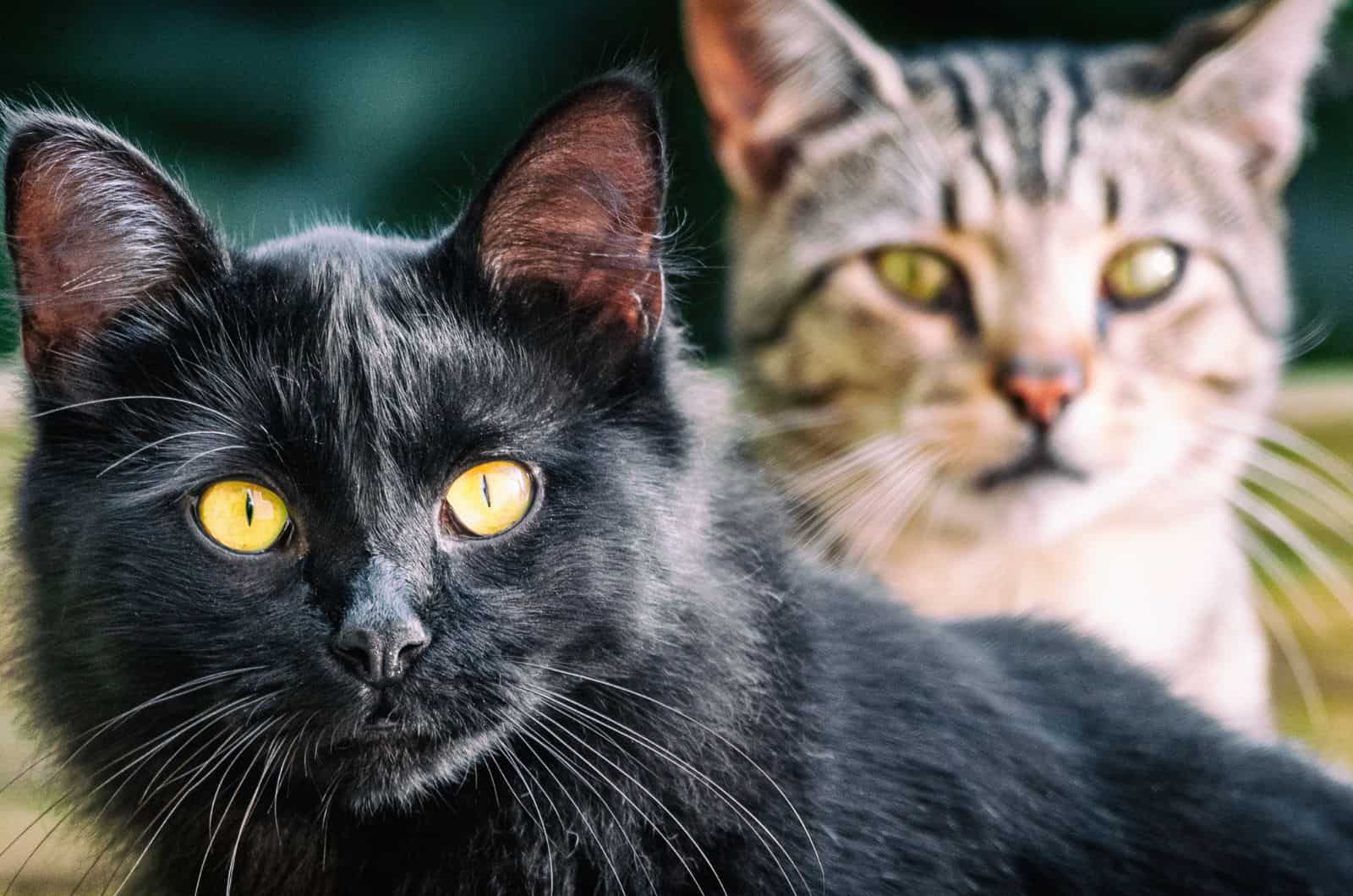
An intact male cat spraying odor is substantially stronger than female and neutered male urine.
Unneutered male cats urine-mark more often than neutered cats. The unique “tom cat” odor, which is intense, is released when an intact male sprays. By giving off this strong, ammonia-like odor, he is letting female cats know he is available for mating.
Most female cats begin spraying due to environmental changes, medical problems, and elevated stress levels. Even though they don’t spray as frequently or intensely as male cats, they still produce a lot of unpleasant smell.
Why Do These Differences Exist?
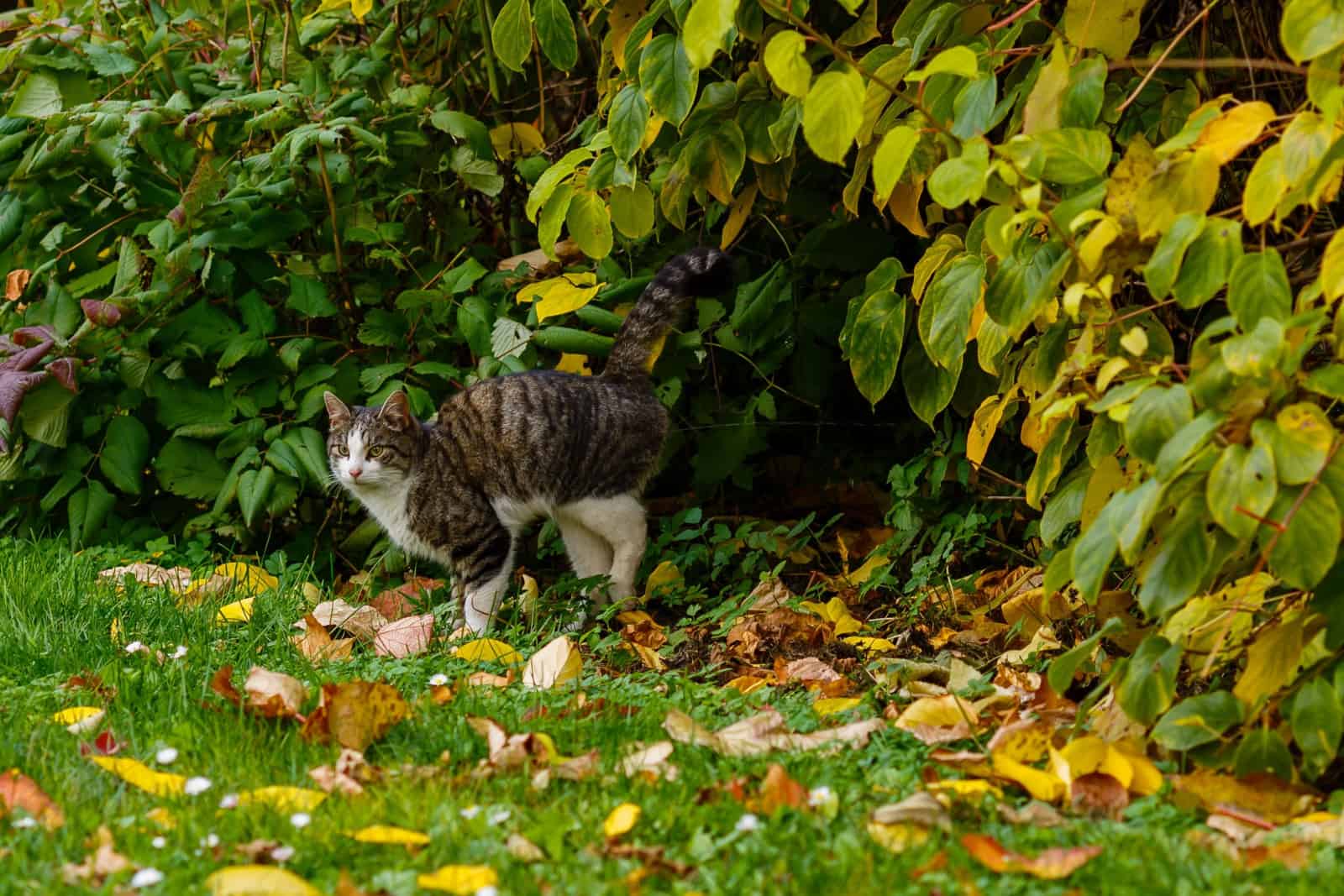
The scent of intact male cat spray is substantially more potent than that of female and neutered males. This is because unneutered male cats and female cats have lower quantities of hormones in their system.
Felinine, an amino acid that contains sulfur, is excreted in cat urine. Intact male cats pass much more felinine than adult females and castrated males, as felinine excretion is controlled by testosterone.
Felinine depends on cauxin (a protein), and male cats older than three months are the ones who emit cauxin the most. As a result, older cats have more significant concentrations of felinine than young kittens.
All the mentioned factors (age and sex) will also reflect on the spray smell.
Why Do Cats Spray?
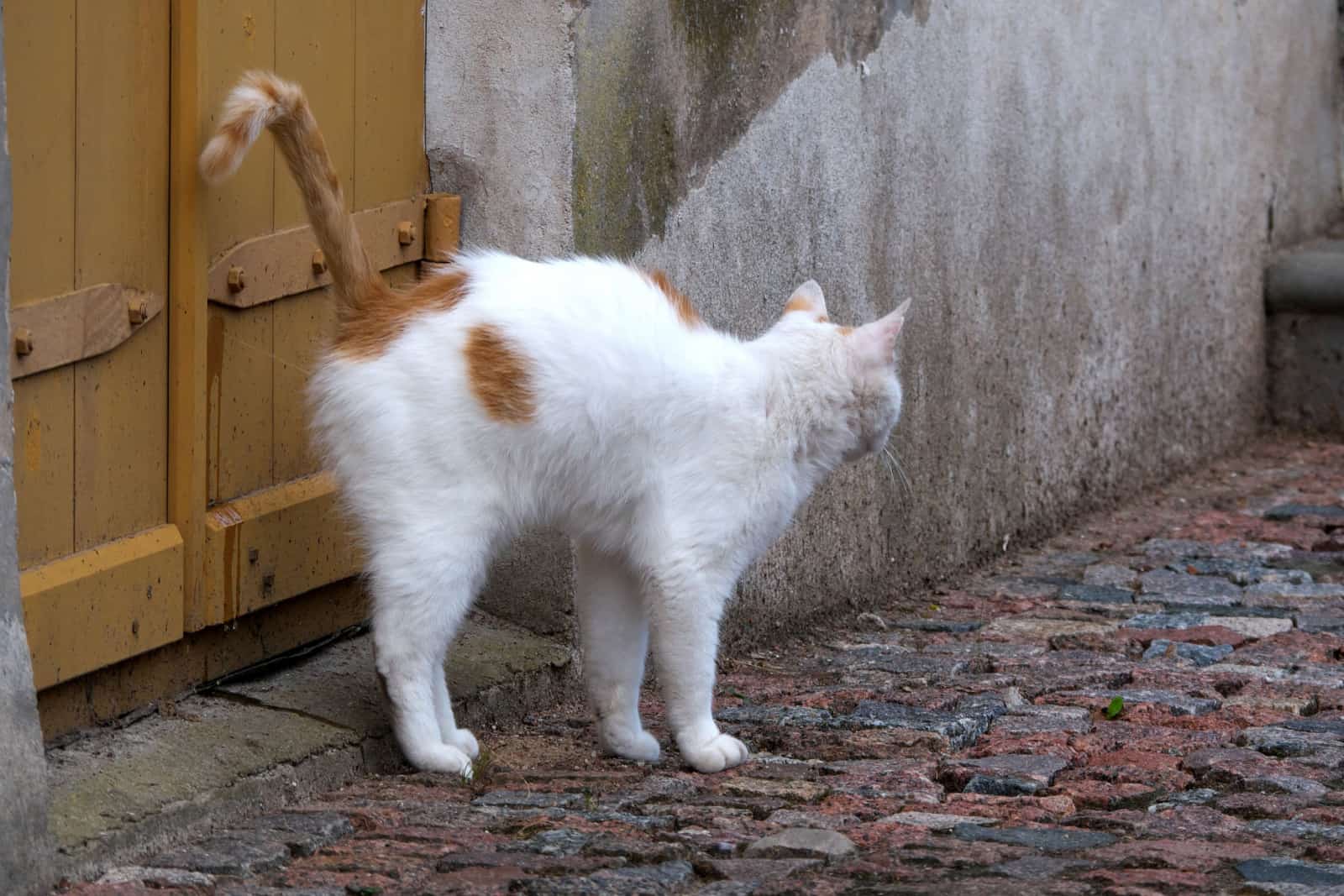
Although hormones frequently encourage cats to spray, there are other causes. Cats may spray in response to stress, anxiety, or frustration with their surroundings, including limited diets, lack of playing, or territorial battles with other cats.
1. Territory Marking
Spraying is a way cats mark their territory, especially if another cat is snooping about your yard and leaving its imprint. Even if your cat doesn’t venture outside often, there’s a chance they’ll sniff the “intruder” and spray around a door or window if they smell it.
2. Sexual Receptivity
Cats will mark their area to express sexual receptivity and availability. It is their way of letting the opposite sex know they’re available for mating. However, this behavior is more common in tomcats.
3. Presence Of Other Cats
Marking can occur as a result of the presence of new pets, especially cats, in the neighborhood or within the home. A cat feels threatened by the presence of unfamiliar cats and resorts to “re-establish” its territory and let them know, “hey, this is mine!”
Cats in multi-cat households can also use spraying to create borders, establish a pecking order, and resolve conflicts.
4. Stress
Changes in living arrangements and being in new environments can all cause spraying. In these instances, the cat may mark new things brought into the household or family members’ property, particularly those with the most conflict or insecurity.
Ways To Get Rid Of Cat Spray Smell

As horrible as cat spray smells at first, the longer it stays, the stronger the stink grows. Therefore, as soon as you notice your cat has sprayed a particular area, I highly recommend you clean it up as soon as possible.
Vinegar
Although it has a strong fragrance, vinegar works to eliminate the lingering smell of cat urine that has been sprayed. Vinegar is an acid that dissolves the salts that develop in dried urine stains.
You can use a solution of water and vinegar to clean the sprayed walls and floors. After a few days, the vinegar smell goes away.
Enzyme-Based Cleaners
You can use an enzyme-based cleaner to remove odors from carpets, sofa cushions, mattresses, and linens.
These products’ enzymes degrade the acid in cat urine, eliminating the smell. Natural enzymes and beneficial bacteria aid in the elimination of harmful bacteria that causes unpleasant smells.
Urine odor may be left behind by common household cleaners.
It’s important to get any surface clean enough that your cat cannot smell the urine anymore. Cats are likely to use the same area again if they can smell where they, or another cat, previously urinated.
Avoid Products That Contain Ammonia
Ammonia is present in cat urine, and if a cat smells it, they are more likely to go there. So, stay away from anything with ammonia in it.
Furthermore, ammonia and other chemical cleaners will frequently set the stain, which is the opposite of what you’re attempting to achieve.
Can I Stop My Cat From Spraying?
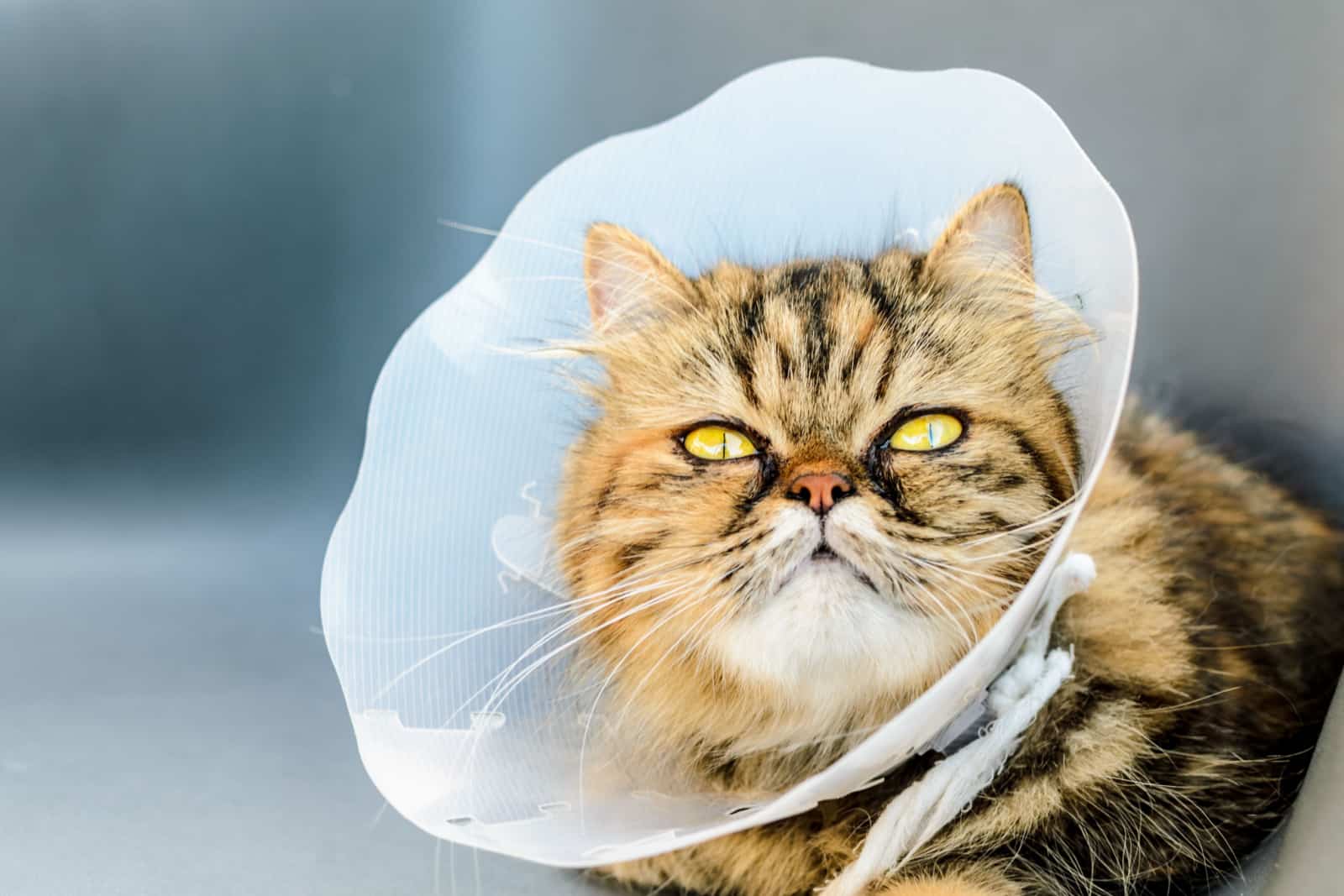
Considering how unpleasant the cat spray smell is, I’m sure you’re interested in preventing spraying in the first place. It’s much better to stop spraying behavior than having to clean it all the time (no matter how efficient the products you’re using are).
1. Spaying And Neutering
If you have an intact male or female cat, getting them neutered or spayed can also help reduce urine spraying. By neutering your male cat, you can reduce both the pungent smell of his pee and his drive to spray.
Sterilization surgery might not stop your cat from spraying if they are already doing it, especially if they have been doing it for a while.
However, spaying and neutering cats is advised as soon as they reach sexual maturity because they reduce spaying behavior and have many other advantages.
2. Do You Have Enough Litter Boxes In The House?
It has been demonstrated that enhancing litter box hygiene can sometimes reduce spraying. Each cat in the household should have its litter box, and the litter should be cleaned daily and replaced at least once a week.
Some cats spray as a way of protesting against something they’re displeased about, such as their litter trays or litter.
3. Make Sure No Stray Cats Come To The Yard
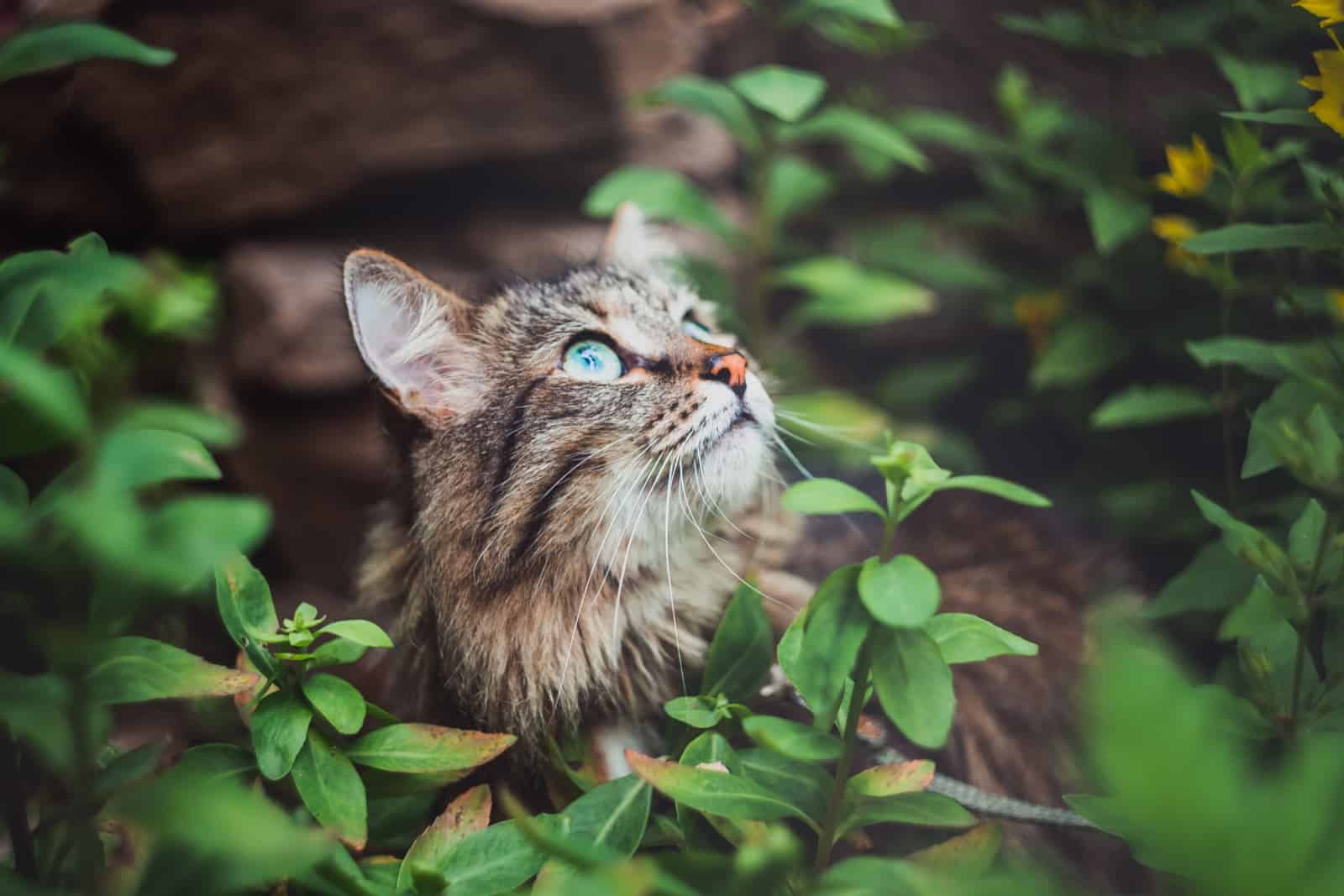
Often, cats spray due to feeling threatened by the presence of another cat. Therefore, you need to find a way to keep them outside your cat’s “territory”.
A cat’s sense of smell is very powerful, and your cat will notice if any other cats have been on the property. Apart from your cat not smelling other cats, it’s important that your cat also does not see or hear them.
4. Are Your Indoor Cats Getting Along?
Identifying which cats in your multi-cat household do not get along could be crucial if the spraying issue stems from cats fighting inside the home.
Keep these cats in separate sections of the house, each with a litter box and a place to sleep.
It helps the cats become accustomed to one another’s presence, at least temporarily, by allowing them to interact for pleasurable activities like feeding, receiving treats, and playing.
However, you will frequently see spraying and marking issues if you have a large number of cats in one household.
5. Have You Considered Using A Cat Diffuser?
Try using a cat diffuser as your next solution to the spraying problem. They function by imitating the pheromones that cats release when they brush their scent glands against objects to mark spots in their house.
These diffusers can calm cats down and help them feel secure thanks to the pheromones they release.
Remember that depending on your cat, diffusers may or may not work. However, there’s no harm in giving them a shot. They’re fairly common in multi-cat households and have even been known to assist cats that struggle with separation anxiety, or anxiety in general, by keeping them calm.
6. Visit A Vet
Determining what your cat is doing—urinating or spraying—and why, can help you and your vet address these issues with your cat.
Certain antidepressants, including clomipramine and fluoxetine, have been shown to be successful in reducing marking in cats.
FAQ
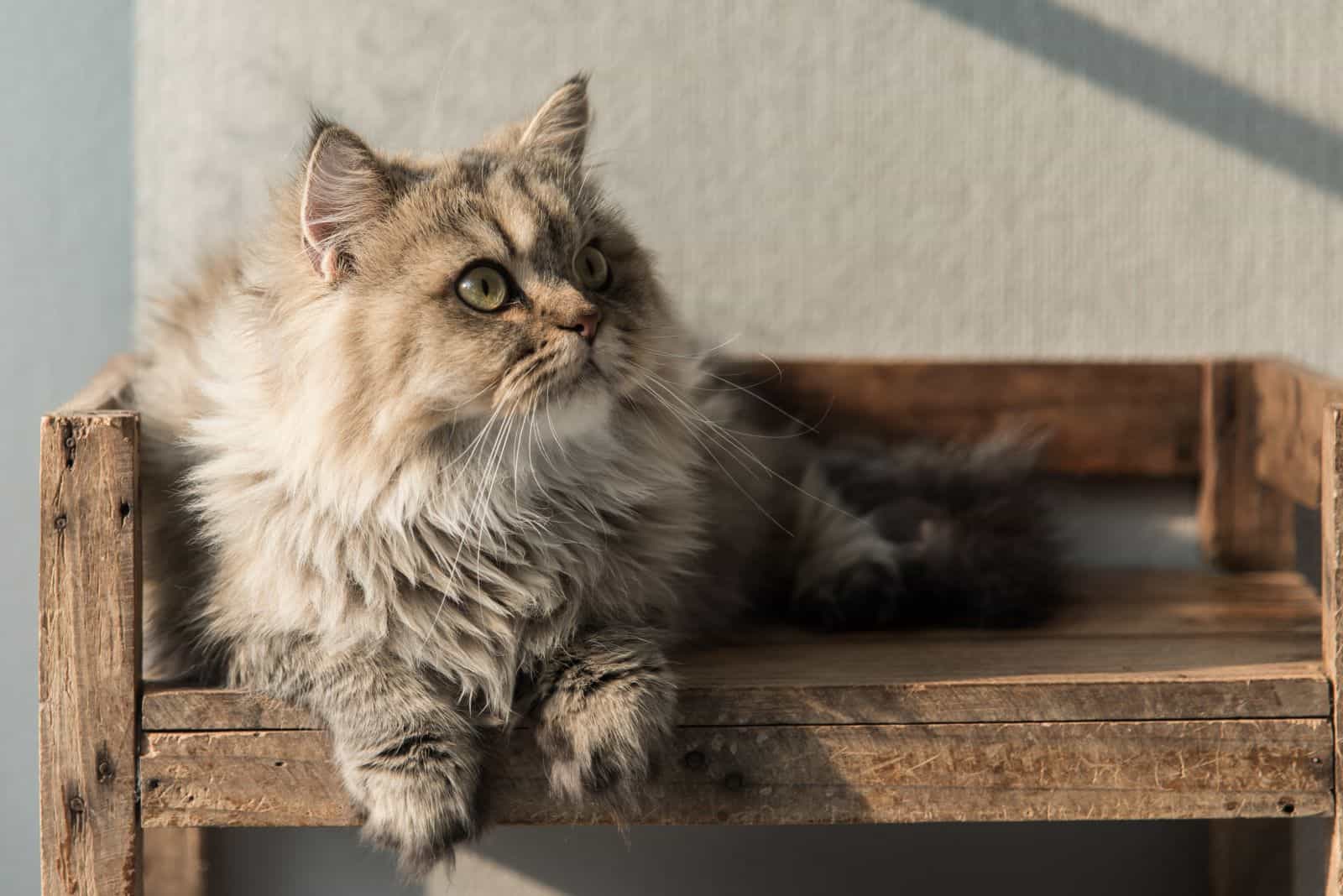
Do Female Cats Spray?
Although much more rarely than male cats, female cats do spray. They do it to show sexual receptiveness, to mark territory, or due to a health issue. Spaying reduces this cat behavior problem, but some cats (around 5%) continue spraying even after spaying.
What Is The Best Way To Get Cat Spray Out Of My Clothes?
First, you need to rinse the sprayed area with cold water. Then wash your clothes in the washing machine.
If you can still smell urine after the cycle is finished, add enzyme cleanser to the wash (as directed on the box) and repeat the process. You may need to rewash the clothes one or more times before removing the smell.
How Long Does Cat Spray Odor Last?
The smell of cat spray can linger for quite some time. It’s very persistent, so it will not disappear in a few hours. You might even have trouble getting rid of it with multiple rounds of cleaning.
In Conclusion
What does cat spray smell like? Experienced cat owners will tell you the smell of cat spray is very unpleasant and more pungent than urine.
If you have a cat, you will undoubtedly have to deal with inappropriate urine elimination or spraying at some point. If you notice certain vertical surfaces have an odd urine-like odor, you can conclude that it’s due to your cat spraying there.
These problems can be frustrating, especially if your cat lives inside. However, spraying behavior can be reduced by neutering and spaying cats and reducing their stress levels, as stress is a common cause of spraying behavior.
I recommend talking to your veterinarian about your cat’s spraying behavior, and I’m sure you’ll resolve your kitty’s spraying behavior soon enough!
Related Articles:
Do Female Cats Spray? Tackle It Right Now Using These Tips
My Cat Peed On My Clothes Right In Front Of Me: 9 Possible Reasons
7 Reasons Why Is My Cat Peeing On Furniture + Prevention Tips!



